AAPA Urges Swift Adoption of Stauber Amendment
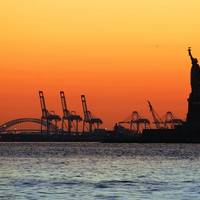
The American Association of Port Authorities (AAPA) has voiced strong support of Representative Pete Stauber’s (R-Minn.) amendment to the Transportation Housing and Urban Development (THUD) Appropriations bill which, if implemented, would restore funding for the Port Infrastructure Development Program (PIDP).“The Feds have made a serious, laudable, bipartisan down payment on port infrastructure modernization with $1.45 billion awarded through PIDP so far. Don’t stop now, Congress,” said Cary Davis, AAPA President and CEO.
New Bill Aims to Address Sexual Misconduct in the Merchant Marine
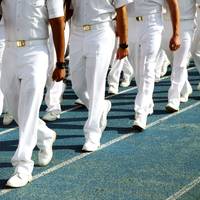
A group of U.S. Senators has introduced new legislation aiming to strengthen sexual assault/sexual harassment (SASH) prevention, response, investigation and accountability in the maritime industry and provide additional safeguards for the Midshipmen at the United States Merchant Marine Academy (USMMA).The Improving Protections for Midshipmen Act is being put forward by Roger Wicker (R-Miss.), Susan Collins (R-Maine) and Kirsten Gillibrand (D-N.Y.) after the United States’ federal…
Survey Seeks to Gauge COVID-19's Impact on Mariner Mental Health
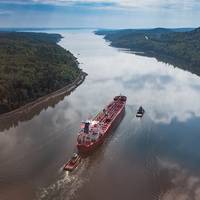
The U.S. Committee on the Marine Transportation System (CMTS) COVID-19 Working Group (C-19 WG) is encouraging mariners from all segments of the U.S. maritime industry to anonymously complete the “Mariner Mental Health Needs during Covid-19” online survey here.The confidential survey takes about 10 minutes to complete and asks mariners about COVID-19, mental health, and their experiences and feelings when on board vessels during the challenges of this pandemic. No mariner identification data is collected.CMTS…
AIS Data: History & Future
The Automatic Identification System (AIS) was developed with the sole goal of improving maritime safety by allowing ships in proximity to one another to automatically exchange information regarding their name, course, speed, type, cargo, etc. The exchange of this information would allow conning officers on each ship to make better decisions regarding the possibility of close encounters and the need to change course and/or speed. It would also make it easier for one ship to contact the other by radio-telephone to hopefully remove any doubt. To that extent, AIS has largely worked as intended, although collisions continue to occur.It did not take long, though, for governments to get involved.
The USCG RDC & Electronic Aids To Navigation
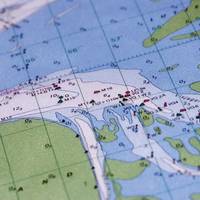
To recreational boaters, Aids to Navigation (ATON) are the familiar red and green buoys (and day markers) that line our inland waterways. What they might not be aware of is that buoys have been around since the days of the Roman and Egyptian empires. In the decades following the creation of our country, buoys in every shape and color began appearing in our waterways. It wasn’t until 1850 that Congress harmonized their deployment, thereby encouraging the familiar “Red, Right, Returning” mantra.
Stakeholders Discuss Use of HFO in the Arctic
The U.S. Coast Guard (USCG) held a public listening session in Washington D.C. on September 27, 2016 to address ships’ use of heavy fuel oil (HFO) in the Arctic, examining its risks and as well as potential mitigation strategies which can be taken to the International Maritime Organization (IMO). The event was held in the Department of Transportation building, where Paul “Chip” Jaenichen, Sr., Maritime Administrator for the U.S. Maritime Administration (MARAD), welcomed participants. The listening session was led by Jeff Lantz, director of Commercial Regulations and Standards at USCG headquarters, and head of U.S. Delegation to the IMO’s Maritime Safety Committee and Marine Environment Protection Committee.
SUNY Maritime to Host e-Navigation Conference
It is likely that regions like the Baltic, the North Sea, the Strait of Malacca, Torres Strait and other areas will implement e-Navigation services that modern ships transiting these areas will be required to subscribe to. This will have the effect of requiring such ships to implement e-Navigation even without a formal IMO carriage requirement. Ships transiting the St Lawrence Seaway are already using e-Navigation services. The U.S., too, is making plans to implement certain e-Navigation Services in its coastal and inland waters. The maritime insurance industry is starting to realize that proper implementation of e-Navigation will improve their general average and is considering avenues to encourage their customers to implement e-Navigation.
SUNY Maritime to Host e-Navigation Conference
The e-Navigation Underway 2015 – North America conference will be hosted by The State University of New York (SUNY) Maritime College from September 28 to 30 on the college’s Throggs Neck, N.Y. campus. The conference’s theme is: “Reducing Risk through E-Navigation,” which follows the pace of the IMO’s Correspondence Group on e-Navigation. The keynote speaker will be Joseph Trotti, CEO of AIG Global Marine and Aerospace, and Francis Zachariae, the new Secretary General of the International Association of Marine Aids to Navigation and Lighthouse Authorities (IALA) and formerly the deputy director general of Danish Maritime Authority (DMA), will be the luncheon speaker on the conference’s final day. Other confirmed speakers include Tracy Murrell, Director Office of Marine Safety, U.S.
GAO: Limited Commercial Arctic Development Foreseen
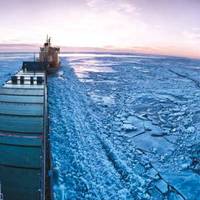
Decreasing seasonal sea ice has opened up Arctic waters for longer periods with resulting potential economic opportunities in commercial shipping, cruises, commercial fishing, oil, and mining. In light of the importance of U.S. efforts to effectively manage Arctic issues, GAO was asked to examine U.S. actions related to developing and investing in Arctic maritime infrastructure, which it did without making any recommendations. The Committee on the Marine Transportation System (CMTS) had earlier prioritized two broad categories to be addressed in the near term: information infrastructure…
SOCP Annual Fall Meeting & 20 Year Anniversary Event
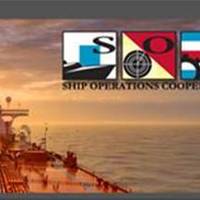
The SOCP cordially invites the maritime community to attend the SOCP Annual Fall Meeting, celebrating 20 Years of Collaboration & Innovation to Improve the U.S. Maritime Industry . This event will be held at MITAGS-PMI-CCMIT, 692 Maritime Boulevard, Linthicum, MD 21090 on November 6-7, 2013 . A high caliber line up of speakers h ave been invited to this exciting event, including Mr. Paul N. Jaenichen, Sr, Acting Maritime Administrator of MARAD and Rear Admiral Joseph A. Servidio, Assistant Commandant for Prevention Policy, U.S. Coast Guard. Moderator: Rear Admiral Joseph A. Moderator: Ms.
U.S. Maritime Strategy: a Time for New Beginnings
The imperative for a holistic United States maritime strategy has never been greater. This is not news to many of you, but the call must be raised more persistently, more vocally and by many more of us, in order to drive action beyond rhetoric. The National Strategy for the Marine Transportation System was published in July 2008 by the previous administration. We are now in the second iteration of leadership changes at the Department of Transportation and Maritime Administration since the strategy was issued. The White House, the Congress, and the maritime industry should collectively and collaboratively address the evermore pressing…
NOAA Announces New Members of The Hydrographic Services Review Panel
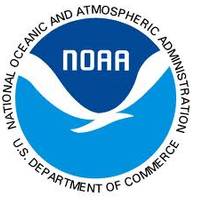
NOAA Administrator Jane Lubchenco recently appointed nine new members to the Hydrographic Services Review Panel, a federal advisory committee that gives NOAA independent advice for improving ocean and coastal navigation products, information, data and services. “Optimizing the benefits of navigation services and products is a priority for the agency,” said Margaret Spring, chief of staff for NOAA and the agency’s representative to the Committee on the Marine Transportation System (CMTS).
New Members of NOAA’s Hydrographic Services Review Panel
NOAA Administrator Jane Lubchenco recently appointed nine new members to the Hydrographic Services Review Panel, a federal advisory committee that gives NOAA independent advice for improving ocean and coastal navigation products, information, data and services. “Optimizing the benefits of navigation services and products is a priority for the agency,” said Margaret Spring, chief of staff for NOAA and the agency’s representative to the Committee on the Marine Transportation System (CMTS). “We look forward to hearing perspectives and receiving advice from our new committee members, who represent a wide variety of maritime and coastal zone stakeholder interests. Dr. Lawson W. Stephen Carmel, Maersk Line, Ltd. Jeffrey Carothers, Fugro Consultants, Inc. Dr. Dr. David A. Scott R.
MTS Research & Technology Coordination Conference
The Interagency Committee on the Marine Transportation System (MTS) is sponsoring the seventh annual MTS Research & Technology Coordination Conference. Topics to be addressed at the Conference, being held in Washington, DC on November 16-17, include security, navigation, and environmental and economic issues related to maritime transportation. Keynote speakers include Dr. Charles McQueary, Under Secretary of Homeland Security for Science and Technology and former Deputy Secretary of Transportation Mortimer Downey. (HK Law)
MarAd Charters MTS Advisory Council
The Maritime Administration has chartered the Marine Transportation System National Advisory Council (MTSNAC), an outgrowth of Secretary of Transportation Rodney Slater's 1999 report to Congress, "An Assessment of the U.S. The council will provide advice to the Secretary of Transportation, via the Maritime Administrator, on the current and future needs of the marine transportation system (MTS) and recommended strategies, policies, and goals for meeting them. The council will consist of no more than 30 representatives from non-federal organizations representing a broad cross-section of MTS stakeholders, including: vessel owners and operators…





